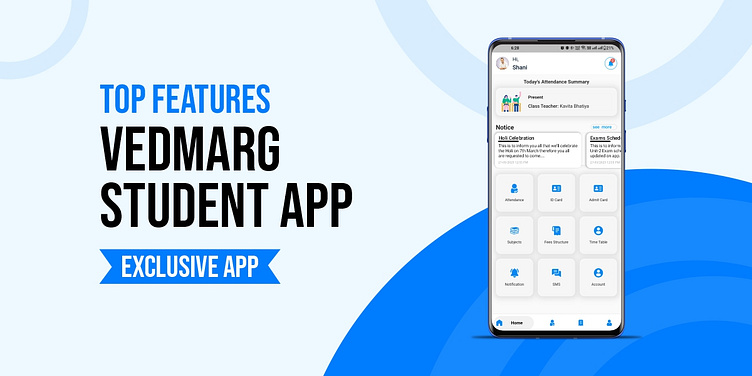Streamlining Educational Management with Top Features of School
In the fast-paced digital era, educational institutions are embracing technology to enhance efficiency, improve communication, and simplify administrative tasks. One such technological marvel transforming the educational landscape is School ERP (Enterprise Resource Planning) software. This comprehensive platform empowers schools and colleges to streamline their operations, from administrative tasks to academic management. Let’s explore some of the key features of school management ERP software:
Student Information Management System: School ERP software is a student management system that offers a centralized database for storing and managing student information. From admission details and attendance records to academic performance and health records, everything is readily accessible to authorized personnel, fostering better communication between teachers, parents, and administrators.
Attendance Tracking System: Gone are the days of manual attendance registers. The school management software automates attendance tracking, simplifying the process for teachers and significantly reducing the time spent on record-keeping. It also enables real-time monitoring of student attendance, alerting parents and administrators about irregularities.
Academic Progress Monitoring: With the School ERP software, tracking the academic progress of each student becomes effortless. Teachers can record and analyze individual performance, identify strengths and weaknesses, and generate insightful reports that aid in personalized learning strategies.
Timetable and Exam Schedule Management: Creating and managing timetables and exam schedules can be a daunting task for schools. School management system software simplifies this process, ensuring optimized scheduling, clash avoidance, and easy sharing with teachers, students, and parents.
Fee Management System: Handling fee payments and records can be complex, but school ERP software offers a seamless fee management system. Parents can pay fees online securely, and schools can effortlessly track payment status and generate digital receipts.
Communication and Collaboration Tools: School ERP platforms promote effective communication between teachers, students, and parents. In-built messaging systems, notifications, and announcements keep all stakeholders informed about important events, deadlines, and updates.
Library Management: The software aids in organizing and managing the school library efficiently. It allows students and teachers to search for books, check availability, and even reserve materials online.
Human Resources Management: Schools need to manage their workforce effectively. ERP software assists in HR tasks, such as managing employee records, leave requests, payroll processing, and performance evaluations.
Transport Management: For schools providing transportation facilities, ERP software streamlines the management of routes, vehicle details, and student transportation records, ensuring safety and convenience.
Data Security and Privacy: Data security is of utmost importance in educational institutions. ERP software implements robust security measures to protect sensitive information, preventing unauthorized access and data breaches.
In conclusion, school ERP software serves as an indispensable tool for modern educational institutions. By incorporating these features, schools can enhance their administrative efficiency, foster better communication among stakeholders, and provide a more enriching and personalized learning experience for students. Embracing technology in education through ERP software can lead to a brighter and more organized future for educational institutions.
